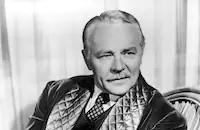Dixie Dugan
Cast & Crew
Otto Brower
James Ellison
Charlotte Greenwood
Charles Ruggles
Lois Andrews
Helene Reynolds
Film Details
Technical Specs

Synopsis
Roger Hudson, a wealthy businessman who has moved to Washington to work for the government as a "dollar a year man," is late for a radio broadcast about his new department, the Mobilization of Woman Power for War. He takes a cab driven by Dixie Dugan, who hopes that being a cabbie while the country's men are away fighting will help the war effort. Her incompetent driving, however, results in an accident for which Roger must take responsibility in order to reach the radio station in time. Dixie then returns home, where she lives with her father Timothy, who is constantly practicing his air raid warden duties, her mother Gladys, an aspiring Red Cross worker, and cousin Imogene, who studies incessantly to become a "quiz kid." The Dugans rent out their spare rooms to Dixie's fiancé, Matt Hogan, and to blustering Judge J. J. Lawson. Matt, who works in a munitions factory, wants Dixie to settle down and marry him, but Dixie is determined to help her country. A few weeks previously, Dixie took a civil service exam and is thrilled when she finally receives an appointment. Unfortunately, the job is as secretary to Roger, who has never before had a woman secretary. Roger's dismay grows when he remembers Dixie from the car accident, but he is prevented from firing her because of her civil servant status. Roger's fiancée, Jean Patterson, is jealous of Dixie, as Matt is of Roger, but the pair discover that they work well together. Pressure from Jean and Matt forces Roger to come up with a job that will take Dixie out of the office, and so he tells her to do a door-to-door survey of women to find out what would free them from family responsibilities and enable them to participate in more defense work. Although Dixie tackles her new task with much enthusiasm and writes a comprehensive report, Roger does not take her work seriously. Infuriated, Dixie accuses Roger of being a "woman-belittler" and a phony, then storms out of the office. Shamed into reading Dixie's report, Roger finds that it is filled with useful information and suggestions. Dixie refuses to return his calls, however, and Lawson takes advantage of the situation by setting up an interview for her with a newspaper editor who is out to ridicule Roger. While Lawson receives money for bringing in Dixie, Roger and his department are painted as money-draining wastes of time. After Dixie then negates the story and chastises Jean for her jealousy, Jean urges her father, Senator Ira Patterson, to discuss Dixie's report on his upcoming radio broadcast about the homefront. Dixie is hailed as a hero, while Lawson is arrested for draft evasion. Finally proud of Dixie's work, Matt listens with resignation as she accepts Roger's offer to accompany him to England to do survey of women there.

Cast

James Ellison

Charlotte Greenwood

Charles Ruggles
Lois Andrews
Helene Reynolds

Raymond Walburn

Ann Todd
Eddie Foy Jr.

Irving Bacon
Sarah Edwards
George Melford

Mae Marsh

Morris Ankrum
Dick French
George Lessey
Paul Burns
Ruth Warren
Eddie Dunn
Milt Kibbee
Billy Wayne
Clarence Hennecke
Sam Wren

Ray Walker
Jack Chefe
Dick Baron

Byron Foulger
John Wald

Emmett Vogan
Sam Mcdaniel
Dave Willock
Steve Darrell

Millard Mitchell
Frances Morris
Lester Dorr
Frank Faylen

Bess Flowers
Harry Denny
Cy Ring
Minerva Urecal
Kitty Mchugh
Crew
Harry Brand
Harold Buchman
Lewis Creber
Richard Day
William Goetz
Herschel
Frank E. Hughes
Arthur Lange
Harry M. Leonard
George Leverett
Thomas Little
Lee Loeb
Dean Markham
Peverell Marley
Walter Morosco
Emil Newman
J. Watson Webb
Henry Weinberger

Film Details
Technical Specs

Quotes
Trivia
Was intended as the first in a series based on the comic strip character; it was a failure at the box office, so the series was scrapped.
Notes
The following production information comes from Hollywood Reporter news items: Ray McCarey was the film's director for approximately ten days, but after becoming ill with a stomach ailment, he was replaced by Otto Brower. A nationwide search was conducted by the studio for an actress to play "Dixie Dugan," and Lois Andrews made her screen debut when she won the part. Although Hollywood Reporter stated that Charlie Ruggles was to sing a song and dance a jitterbug, for which he received instructions from Eddie Mostelier, there were no musical numbers in the viewed print. Writers Lee Loeb and Harold Buchman were reported to have conferred with Andy Randall, the "lexicographer for the new jargon which has sprung up among the younger generation," about slang expressions, but the extent of Randall's contribution to the completed film has not been confirmed. Twentieth Century-Fox originally intended to turn the picture into a series, with Walter Morosco producing two more films with Andrews, Charlotte Greenwood, Charlie Ruggles, James Ellison and Ann Todd, but no other pictures featuring "Dixie Dugan" were produced. In 1928, First National Pictures released Show Girl, which was directed by Alfred Santell and featured the "Dixie Dugan" character, played by Alice White (see AFI Catalog of Feature Films, 1921-30; F2.5023).












